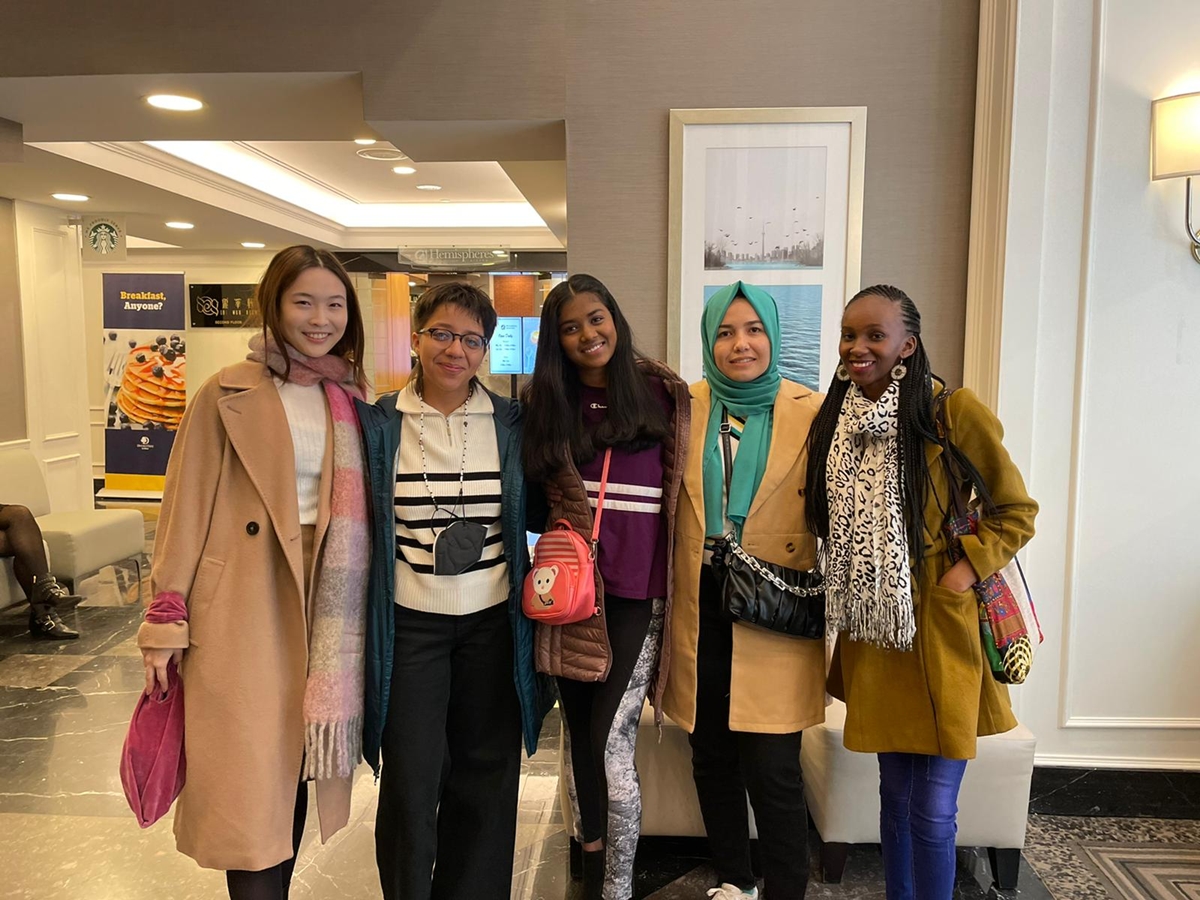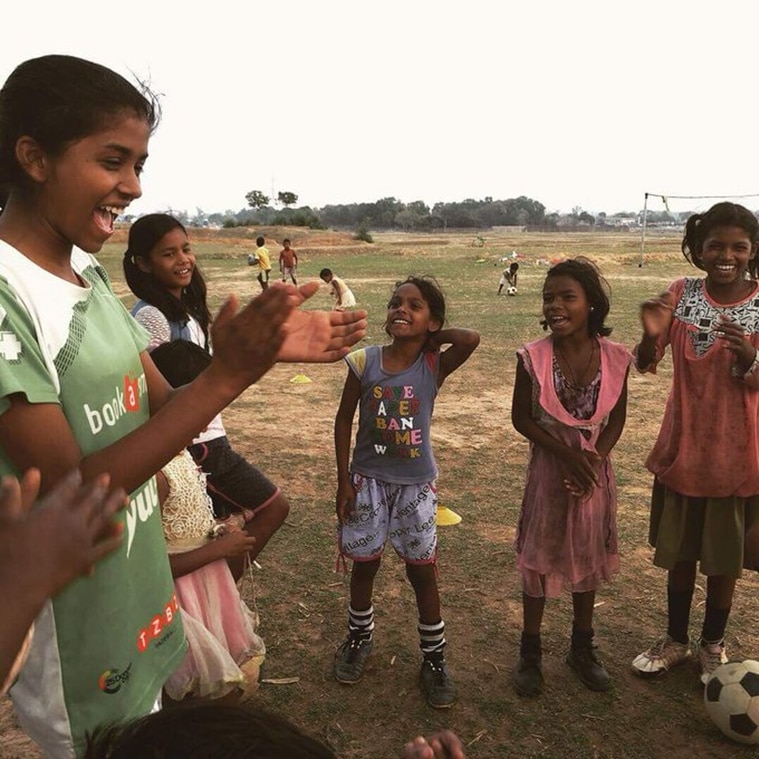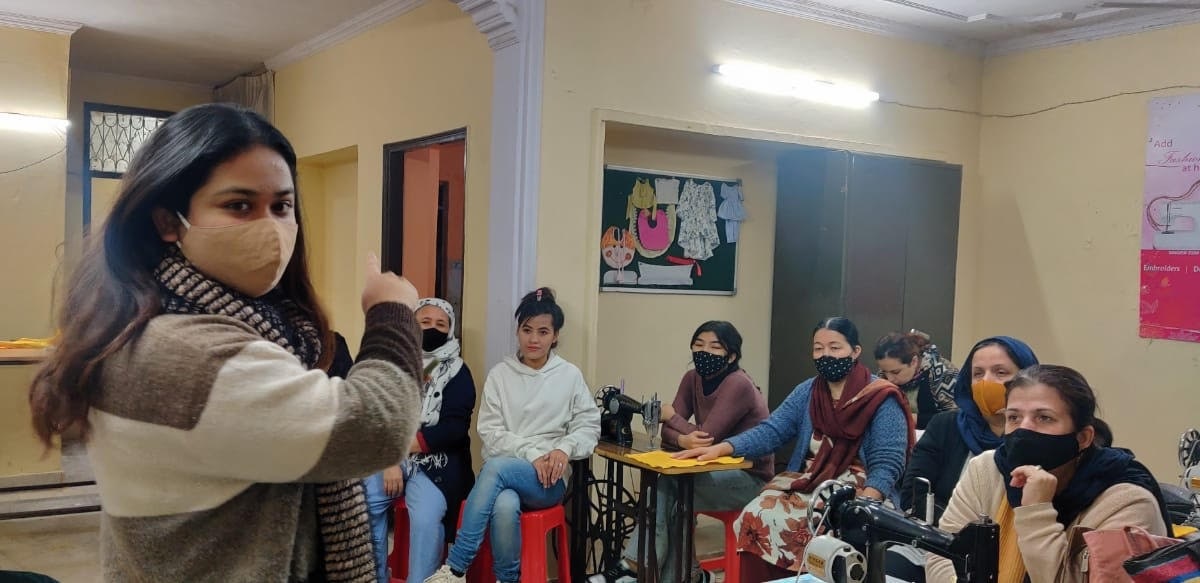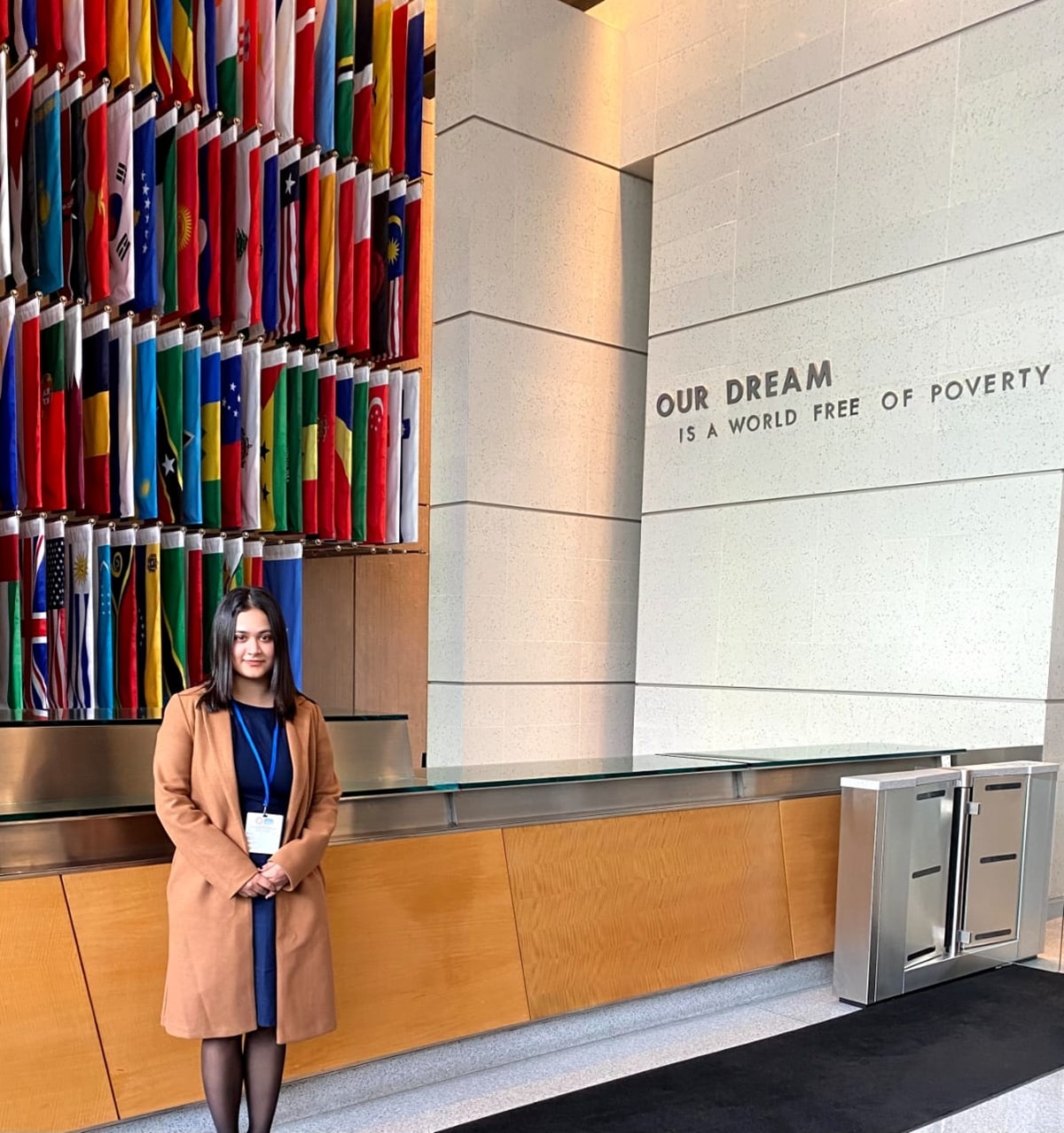Bending norms through football and activism: Meet India’s delegates at gender equity summit

“I will not be a typical village girl,” Rima Kumari decided when two girls returned to her village, Sildiri, in Jharkhand’s Ormanjhi area after playing in an international football tournament in Spain.
“When I saw people speaking about those two girls, I wondered why they were not getting treated like me—a normal village girl. Why were they not expected to get married? I wanted to be the same. So I thought of playing football because that’s how they did it,” says Rima.
But the journey was not easy. In her village, most girls are forced into child marriage, only to face domestic violence later, Rima (19) tells indianexpress.com. “They told me you can study till you’re five or six, and then you have to learn domestic chores because you would get married when you’re a teenager. It was told to me—it was commanded—just like in a dictatorship,” she recalls.
 Rima Kumari along with other delegates, ahead of the Global Summit. (Credit: Rima Kumari)
Rima Kumari along with other delegates, ahead of the Global Summit. (Credit: Rima Kumari)
Her first attempt at playing football in 2013 was met with a harsh “no” from her father, a tailor. All of 10, Rima then decided to sneak out of home and play without his permission, confiding only in her mother.
Two to three weeks later, when her ruse fell flat, Rima faced questions and accusations. “It wasn’t just from my dad, it was from all the neighbours, my village, my society. They would call me a negative example for girls in our village because I was trying to break the social norms,” she says.
It was only when she first ventured out of Sildiri to Surat, Gujarat, for a Frisbee competition that the ice thawed. “No one had gone anywhere out of the village from my entire family, so they were wowed.”
 Rima coaches football to young girls in Sildiri, Jharkhand. (Twitter/YUWA football)
Rima coaches football to young girls in Sildiri, Jharkhand. (Twitter/YUWA football)
Rima finally gained her family’s support and trust in 2015, when she travelled to Spain for the first time for the Donosti Cup, an international football tournament.
Her travels stemmed from an intense desire for change. Rima says, “A lot of things go on in Jharkhand: child marriages, child labour and domestic violence. They aren’t thought of as problems in our society. I see the story of my grandma, my aunt or any other woman. What have they done? They were born, they learned how to cook, they got married and right after a year, they gave birth. They still have to ask their husbands for literally everything. When I travelled, I saw women being independent, making decisions and driving. I thought, why is it so different in my village? Why are women getting treated differently than men? And that’s when it struck me: no, this is not right.”
Rima went on to coach under-12 and under-14 girls in football to pay her and her sister’s school fees. She has also given talks at various international platforms on her journey and gender inequality.
Miles away in New Delhi, Kashvi Chandok, born into an urban middle-class family, had to come to terms with subtler forms of gender inequality that may not be as outrightly discriminatory as child marriage, but are pervasive and harmful nevertheless.
 Kashvi Chandok with refugee women from Afghanistan during a UNDP project. (Credit: Kashvi Chandok)
Kashvi Chandok with refugee women from Afghanistan during a UNDP project. (Credit: Kashvi Chandok)
“Growing up in India, even in urban centres, you feel those passive and active discriminations. There are so many said and unsaid restrictions on you. I remember my mom telling me that my family had inhibitions when my younger sister was born because now we had two girls in the family. You grew up hearing things like you have turned fat, or don’t go out in the sun. There are so many beauty standards… so many things that you have to be conscious about. I knew several girls who had body dysmorphia,” says Kashvi (21).
Body dysmorphia refers to the belief that aspects of one’s own appearance are severely flawed and that exceptional measures are required to fix or hide them.
Having always been passionate about humanitarian work, Kashvi joined hands with the Delhi Commission for Women and the mahila panchayats of villages in the National Capital Region. It was the field visits to the villages that struck a chord with her. “These women were abused by their husbands and in-laws but still didn’t want to divorce them. That was very shocking for me. The mahila panchayats would help them connect with police or file FIRs, but even they didn’t think that divorce was ever an option for them. Because then life would be worse, right?”
 Kashvi Chandok was declared as a Young Changemaker by UNHCR (Credit: Kashvi Chandok)
Kashvi Chandok was declared as a Young Changemaker by UNHCR (Credit: Kashvi Chandok)
Kashvi, who has also worked on a project helping female refugees from Afghanistan with the United Nations Development Project, and was named a Global Young Changemaker by the United Nations High Commissioner for Refugees, is now a Martin H Steiner scholar at the American University in Washington DC, studying international relations.
Along with Rima, Kashvi will represent India at the Global Summit for women leaders, organised by Fora: Network for Change, formerly known as the G(irls)20 Summit, on November 4 in Toronto, Canada.
The duo are among 30 female delegates selected by Fora from across the world. Aged between 18 and 24 years, the delegates will discuss gender equity and present their ideas to the Commission on the Status of Women, a commission of the United Nations Economic and Social Council. The summit will discuss “innovation for an equitable future”, aligning with the commission’s priority theme for 2023.
As Kashvi puts it, the summit’s focus on women leaders makes it a “safe space” for women to voice themselves and meet other like-minded women. “I just feel so much safer, more heard, and motivated to talk about my issues, the things that I’ve learned, and my experiences. It’s so important that we foster such spaces–women-led spaces for other women where we can come together and talk about policies, larger decisions, and how we can create change,” Kashvi says.
“I also think when we talk about women leaders, everyone assumes you’d be working just for gender. But that’s not true. Girls can also work for larger policy decisions such as for climate or debt reconstruction,” she adds.
For Rima, the summit presents an opportunity to speak up for girls back home on the global stage. “I want to be an inspiration for other girls who are back in my village, in Jharkhand, and not just in India but for girls across the world. Because if I can fight for my rights, why cannot other girls?” she says.

